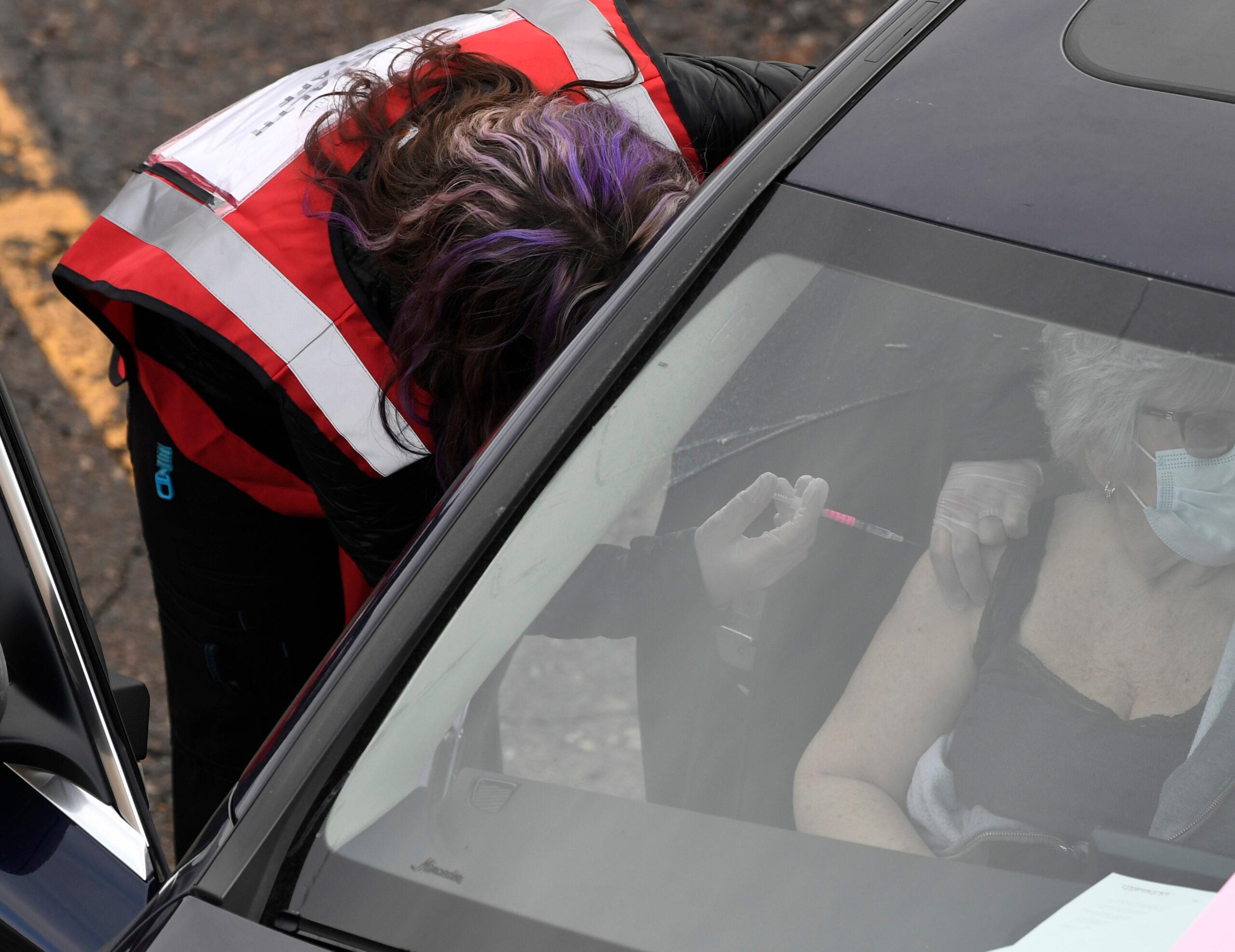
In response to concerns about fewer Black and Latino senior citizens getting access to the COVID-19 vaccine, Colorado’s health officials said Monday they are encouraging large providers to more actively target those groups, particularly when it comes to large vaccination events like one this past weekend at Coors Field.
“We're having conversations with these organizations to say ‘how are you addressing the natural imbalance that happens from an equity perspective?’” said Dr. Eric France, Chief Medical Officer for the Colorado Department of Health and Environment.
France said one way to address this might be having these larger health providers identify zip codes that have traditionally been underserved and invite residents to come in for vaccines. He said another way would be for providers to work more closely with different community organizations to ensure that seniors of all races and ethnicities are aware of large vaccination events in the state.
Demographic data on Colorado’s COVID-19 vaccinations show about 71 percent of all people immunized in the state have been white, while whites make up about 67 percent of the state’s population.
Black Coloradans account for just under 2 percent of those who’ve received a vaccine and make up about 4 percent of the state’s population. Latinos make up just under 5 percent of those who’ve received a vaccine, but account for 21 percent of Colorado’s population.
Among residents 70 and older, the group now getting the most vaccinations, an estimated 10.19 percent are Hispanic and 2.61 percent are black. The state is not providing data on the race or ethnicity of vaccine recipients just within that age range, but the statewide all-ages data would indicate that both Latino and Black residents are at risk of being left behind.
As vaccine supplies improve, those gaps are expected to close. But almost from the start of vaccine development, questions have been raised about whether it would be distributed equitably. The answer so far in Colorado appears to be no.
Gov. Jared Polis spent Saturday on social media highlighting small vaccination efforts in Denver neighborhoods. But while those events attracted hundreds of diverse residents for vaccine, video from a mass vaccination drive at the same time at Coors Field, which Polis also visited, showed thousands of white residents lining up for shots.
UCHealth, which ran the Coors Field event and is one of the state’s largest recipients of the COVID-19 vaccine for distribution, said it has been trying to deliver vaccines to underserved populations. But the health network said they were unable to provide a racial or ethnic breakdown of those who were inoculated at the mass event and said they were not requiring recipients to provide information about their race, as it is not mandated by the state.
The state has encouraged providers to ask patients for that information when they register for vaccines.
- A Coalition Of Latina Officials Is Fighting Back Against COVID Vaccine Disparities (via Denverite)
- Assisted Living Homes In Rural Colorado Forge Their Own Path To COVID Vaccinations
- Black And Latino Coloradans Are Being Missed In The COVID-19 Vaccine Rollout
- Disability Advocates Still Have Questions About Colorado’s COVID-19 Vaccine Plan
- Trustworthiness Might Be More Important Than Trust When Messaging About COVID-19 Vaccines To Communities Of Color
UCHealth spokesperson Dan Weaver said the hospital system has been working with local groups to expand vaccinations into diverse neighborhoods.
“Our small pop-up clinics ... through partnerships with churches and community organizations are a good tactic to reach lower-income and minority groups,” Weaver said.
He said through those partnerships with places like Denver’s Shorter AME Church and Salud Clinic, UCHealth had vaccinated 1,945 people.
Still, events like this past weekend at Coors Field, where 10,000 people were vaccinated on top of 1,000 the week before, are able to accommodate many more people, but they don’t seem to draw a diverse population. Reservations for vaccine through UCHealth and other large providers is primarily done online.
Those who request appointments are selected at random and offered a slot at a mass event, or in a clinic. But there were about 20 people registered for each available appointment at the weekend mass event, making the odds low.
Polis has repeatedly said equitable distribution of the COVID-19 vaccine is among his primary goals. At the same time, his health department has encouraged those who are working as the state’s partners in distributing the vaccine to do it quickly — within 72 hours of receipt — or risk losing their allocation.
That creates a tension between speed and equity.
A Kaiser Family Foundation poll nationally found that 35 percent of Black residents of all ages would “probably not” or “definitely not” get the vaccine when offered. Among Hispanic residents, the figure was 26 percent, the same as for whites.
But hesitancy among seniors, particularly Black and Latino seniors, to take the vaccine may account for some of the discrepancy. Still, advocates have said the state or providers need to do a better job in reaching out to those populations.








